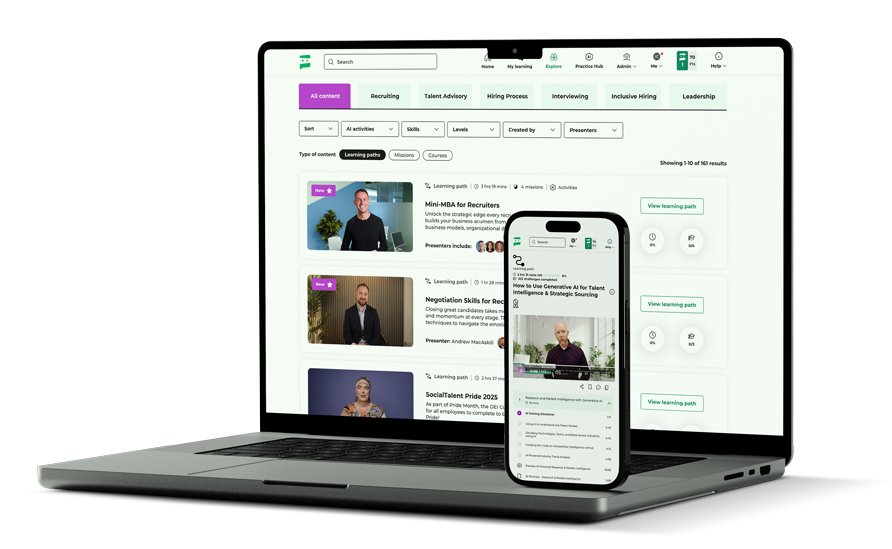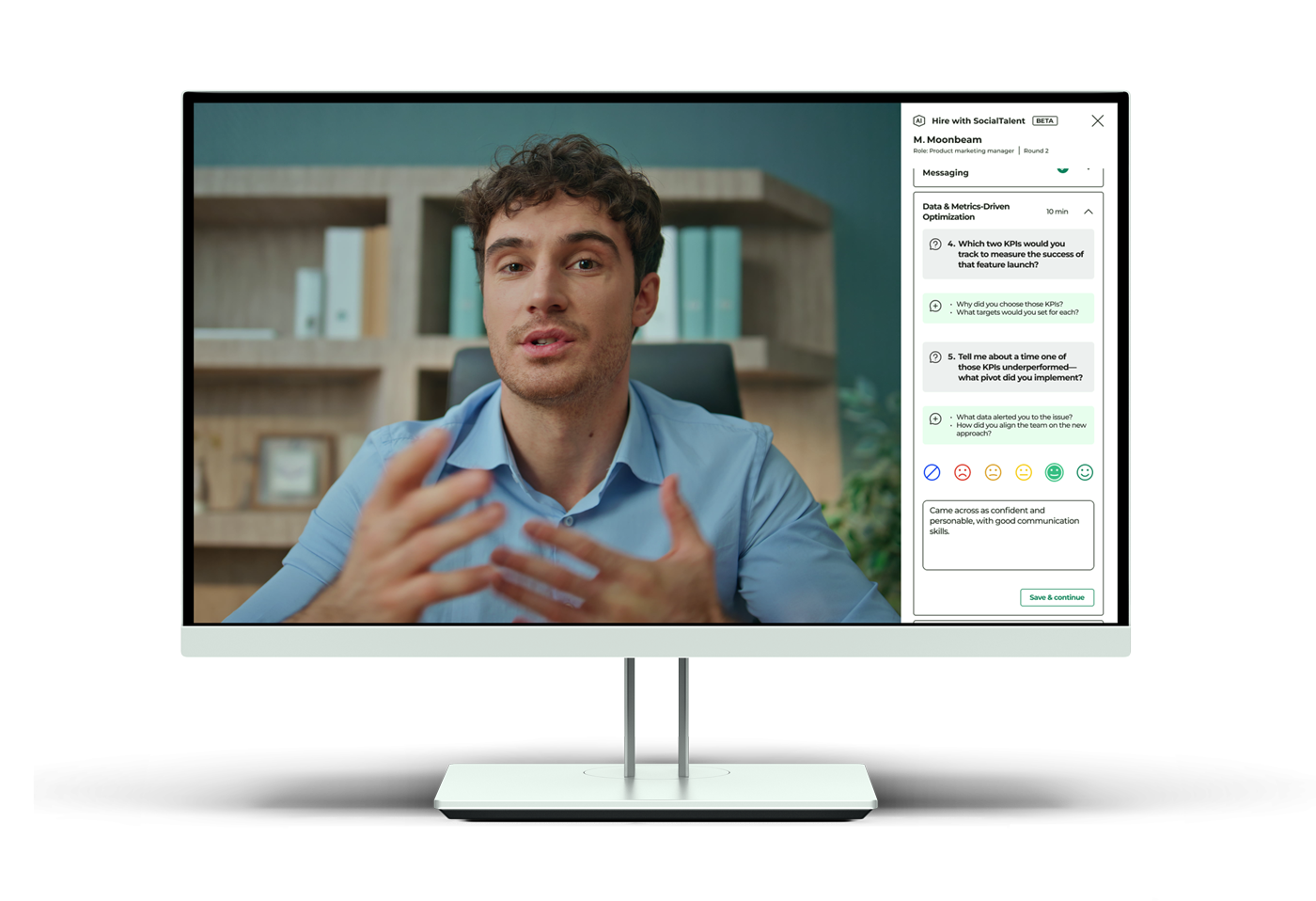By Craig
Virtual interviews are becoming an everyday reality, changing the recruitment landscape in significant ways. Let’s be honest, not every recruiter is prepared for this shift, resulting in common mistakes that can derail the hiring process. With the spotlight on remote interactions, it’s important to identify these missteps and understand their impact. By doing so, we can pave the way for more successful and meaningful candidate interactions.
Here’s the truth: many recruiters stumble during virtual interviews due to neglecting key elements that foster connection and professionalism. The first step is recognising these oversights. From technical hiccups to failing to build rapport, addressing these issues can transform the virtual interviewing experience for both recruiters and candidates.
Prioritising Technical Setup Over Human Connection
A solid technical setup is important for a successful virtual interview, but focusing too much on the mechanics can overshadow the human aspect of the interaction. Let’s be real, no technology can replace the warmth of a genuine connection. The technical side acts as the backbone, ensuring smooth communication, but it’s the dialogue and engagement that forms the heart of the interview.
While striving for a seamless tech experience, recruiters often neglect the candidate’s comfort and engagement. Here’s the kicker: balancing these elements is key. Imagine conducting an interview where the sound is crisp, the video clear, but the conversation lacks warmth and empathy. You’re missing an opportunity to see the candidate in a holistic light. The dialogue is not supposed to be confined to perfect pixels. It’s about meaningful exchange.
To strike the right balance, consider the following:
– Do the basic technical checks ahead of time: audio, video, internet stability
– Start the call warm and welcoming, not just with a checklist
– Keep a back-up plan ready for tech issues, but don’t let it disrupt the flow
By keeping the focus on the person rather than the platform, recruiters create an environment where candidates feel seen and heard beyond the screen.
Failure to Create a Personal Connection
Let’s be honest, creating a personal connection in virtual spaces can feel unusual, but it’s more important than ever. Without that initial handshake or casual chitchat, the opportunity to build trust sometimes falls flat. In a virtual context, we need to get creative to bridge this gap.
Building rapport isn’t just about following a script or ticking boxes. It’s about treating the person on the screen like someone sitting right in front of you. Even light small talk or expressing genuine interest in the person’s background can shift the tone.
Ways to build better personal connection online:
– Be present and avoid checking other screens or multitasking
– Use the candidate’s name and refer to details specific to their experience
– Maintain warm facial expressions and an inviting tone
Too often, interviews turn mechanical or overly transactional. A little effort to connect on a human level pays off in engagement, openness, and candidate perception.
Ignoring Body Language and Non-Verbal Cues
There’s a myth that virtual interviews reduce the impact of body language, but that couldn’t be further from the truth. Even without sharing the same physical space, how you sit, smile, nod, and make eye contact still matters.
Non-verbal cues help you get a fuller picture. Is the candidate nervous, excited, or doubtful? Are your own expressions giving off the right signals? Ignoring these elements can lead to miscommunication or missed red flags.
Here are a few pointers to fine-tune virtual presence:
– Use expressive gestures that show enthusiasm and attention
– Look at the camera when speaking to simulate eye contact
– Stay aware of your posture and facial expressions
Reading and projecting the right signals help build trust and give recruiters valuable insight into how the candidate communicates. It’s not about acting; it’s about being consciously engaging.
Inadequate Preparation and Research
Preparation for a virtual interview should mirror that of any meaningful interaction. But too often, we treat virtual interviews as quick or informal chats. That casual approach leads to awkward moments or lacklustre conversations that fail to uncover deeper insights.
Going into an interview well-prepared means the candidate gets the attention they deserve, and you gather the information you need to make the right decision.
A proper preparation checklist looks like this:
– Review the candidate’s résumé and LinkedIn profile in advance
– Prepare specific questions based on their experience or career gaps
– Know your virtual platform well to avoid fumbling during the call
Lack of prep reflects poorly on both the recruiter and the organisation. But when you show up informed and focused, it sets a standard and creates a more engaging exchange.
The Importance of a Quick Follow-Up
Imagine going through an interview, feeling hopeful, and then hearing nothing. Weeks of silence can turn a strong candidate into a firm rejecter of the process. And fair enough. When candidates take time to meet, they expect the same respect in return.
Too many great conversations fizzle out simply due to late follow-ups. This doesn’t just create a negative impression. It also increases the chance of losing top talent to more efficient hiring teams.
Here’s how to do follow-up right:
– Clearly outline the next steps before ending the call
– Send a follow-up message within a week – even if there’s no decision yet
– Personalise the message by referencing something from the interview
These aren’t just nice-to-do actions. Timely and thoughtful follow-up reinforces professionalism and sets your process apart.
Elevate Your Virtual Interviewing Skills with SocialTalent
Let’s rewind. Recruiters risk derailing virtual interviews when they focus on tech more than humans, skip rapport-building, miss body language cues, fail to prepare, or forget to follow up. But these aren’t fixed traits. They’re habits that can be sharpened.
At SocialTalent, we believe better interviews create better hiring outcomes. With the right training, recruiters can navigate virtual spaces with confidence and purpose. Whether it’s reading between the lines or leading more engaging conversations, every interaction counts.
Virtual interviews may be here to stay, but they don’t have to feel flat or transactional. When recruiters commit to refining their approach, it shows. And so do the results.
Ready to enhance your recruitment strategy? Explore how training in recruitment can transform your interviewing skills and hiring process from the ground up. At SocialTalent, we offer scalable, AI-powered learning programmes that boost hiring quality, speed, and inclusivity. Let’s rethink what great recruitment looks like, together.


